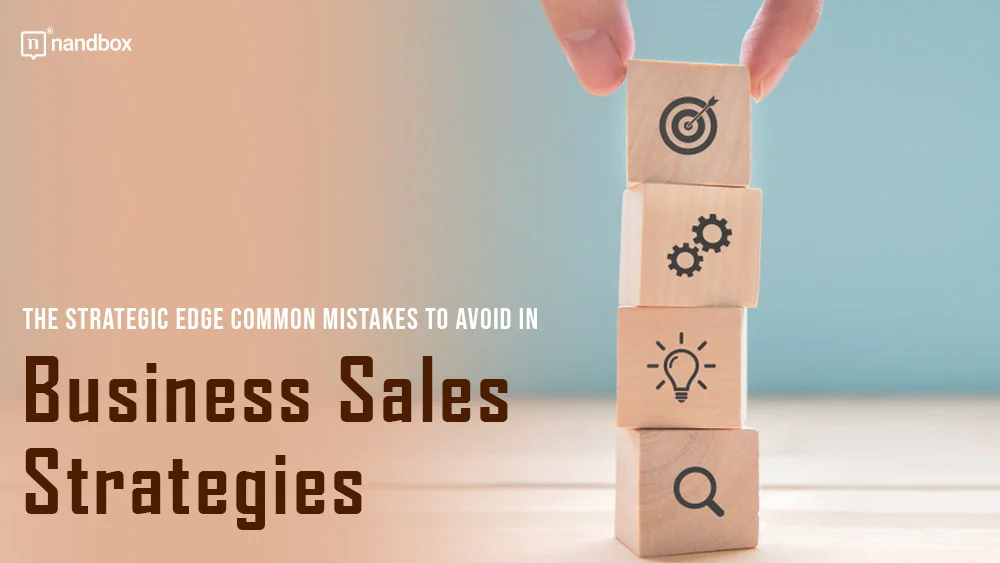Sales strategies are essential to ensuring a business’s financial success, providing an opportunity for promising growth and new markets. However, every strategy should be approached with caution; one wrong move can adversely affect the entire plan. Hence, it is important to identify some of the most common mistakes that can easily undercut your sales plans and undermine your progress. In this blog post, we will discuss some of these blunders so that you can enhance your strategic edge going forward and secure positive outcomes in business sales strategies.
Neglecting Comprehensive Market Research
One of the most common mistakes in developing business sales strategies is neglecting comprehensive market research. This step is crucial, as it provides you with essential information about your target audience, competitors, and industry trends. Without this knowledge, your strategies may be based on assumptions that could lead to ineffective sales efforts. When building your sales strategy, take the time to thoroughly research your market and gather key insights that will help you make informed decisions. This will give you a better understanding of your customers, their needs and preferences, and how your product or service can meet those needs effectively.
Ignoring Competitor Analysis
Another significant misstep in formulating business sales strategies is disregarding competitor analysis. Understanding what your competitors are doing, their strengths and weaknesses, and their approach to the market is integral to developing an effective sales strategy. Ignoring this can leave you trailing behind, unable to respond to competitors’ moves effectively or capitalize on their weaknesses.
A comprehensive competitor analysis allows you to identify gaps in the market, develop unique selling propositions, and tailor your products or services to stand out. Remember, knowledge of your competitors is power; it equips you to anticipate their moves, counter them effectively, and stay ahead in the market race.
Inconsistent Brand Messaging
An often overlooked flaw in business sales strategies is inconsistent brand messaging. Consistency in how you communicate your brand’s values, vision, and unique selling propositions is vital in building trust and recognition among your target audience. Inconsistency in brand messaging can confuse your audience, dilute your brand value, and ultimately lead to lost sales opportunities.
To ensure consistent brand messaging across all platforms and campaigns, establish a coherent brand voice and style guide. This will not only improve your brand’s recognition and reliability but also enhance your customers’ association and emotional connection with your brand. Remember, a consistent brand message helps in shaping customer perceptions and building a strong brand identity that resonates with your target audience.
Underestimating the Power of Relationship Building
A common mistake that many businesses make in their sales strategies is underestimating the power of relationship-building. Having a strong product or service is important, but it’s the relationships you cultivate with your customers that often determine their loyalty to your brand. In an increasingly competitive market, customers are looking not just for a product, but for a genuine connection and an understanding of their needs. By overlooking this aspect, businesses may miss out on opportunities for customer retention and referrals, both of which are crucial for sustainable growth.
Building strong relationships requires time and effort; it involves nurturing trust, providing excellent customer service, and engaging customers beyond the transactional level. If the challenges of other sales-related processes like prospecting and campaigning stand in the way of your team’s ability to build meaningful relationships, consider partnering with a sales agency. These experts can help support your team by tackling the most time-consuming tasks so your customers can take center stage pre- and post-sale. Always remember that people prefer to do business with brands they trust and feel connected to. Therefore, make relationship building an integral part of your sales strategy to enhance customer satisfaction, loyalty, and ultimately, your bottom line.
In conclusion, formulating effective business sales strategies requires careful planning, research, and a holistic approach. Avoiding these common mistakes can give you the strategic edge needed to achieve your sales goals and drive long-term success for your business. Keep in mind that every market is different, so regularly review and adapt your strategies to ensure they are always aligned with your target audience’s needs and expectations.




